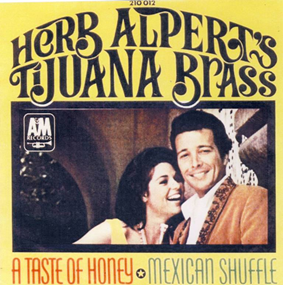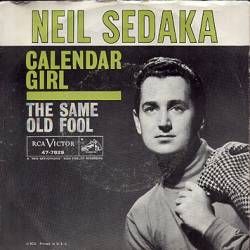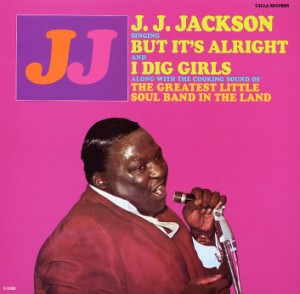Related Research Articles
The Tornados were an English instrumental rock group of the 1960s that acted as backing group for many of record producer Joe Meek's productions and also for singer Billy Fury. They enjoyed several chart hits in their own right, including the UK and US no. 1 "Telstar", the first US no. 1 single by a British group.

"Night and Day" is a popular song by Cole Porter that was written for the 1932 musical Gay Divorce. It is perhaps Porter's most popular contribution to the Great American Songbook and has been recorded by dozens of musicians. NPR says "within three months of the show's opening, more than 30 artists had recorded the song."

"A Taste of Honey" is a pop standard written by Bobby Scott and Ric Marlow. It was originally an instrumental track written for the 1960 Broadway version of the 1958 British play A Taste of Honey which was also made into the film of the same name in 1961. The original and a later recording by Herb Alpert in 1965 earned the song four Grammy Awards.
"Peppermint Twist" is a song written by Joey Dee and Henry Glover, recorded and released by Joey Dee and the Starliters in 1961. Capitalizing on the Twist dance craze and the nightclub in which Dee performed, the song hit No.1 on the U.S. Billboard Hot 100 in early 1962. The original recording of the song was considered too long for release on a 45 rpm single, so it was split into two parts. It was this first part, "Peppermint Twist ", with a length of 2:03, which became the No.1 hit; the mostly instrumental second half of the recording is rarely heard today.

"Hold Me, Thrill Me, Kiss Me" is a song written by Harry Noble and originally performed by Karen Chandler in 1952. It has been re-recorded several times since then, the most notable covers being by Mel Carter in 1965 and Gloria Estefan in 1994.

"Yes, I'm Ready" is a song by Barbara Mason from her album Yes, I'm Ready (1965). It has been covered by numerous artists, and was a hit single for Teri DeSario and K.C. when they recorded a duet version in 1980.

"Love's Been a Little Bit Hard on Me" is a song written by Gary Burr and recorded by the American country-pop singer Juice Newton for her seventh studio album Quiet Lies (1982). The recording garnered Newton a Grammy nomination for Best Female Vocalist in the Pop category.
"The Big Hurt" is a pop song that was a hit for Toni Fisher in 1959. The song was written by Wayne Shanklin. "The Big Hurt" is notable because it featured phasing effects which at that time were rare in popular music; DJ Dick Biondi on WKBW would introduce the record as "Toni Fisher's weird one."

"Summer Breeze" is a 1972 song by American soft rock duo Seals and Crofts. It is the title track of their fourth studio album, and was released as the album's lead single in August 1972. The song reached No. 6 on the US Billboard Hot 100 chart in the US. In 2013, it was ranked No. 13 in Rolling Stone′s "Best Summer Songs of All Time". The song also became a hit for the Isley Brothers in 1974.

"Only Women Bleed" is a song by American rock singer Alice Cooper, released on his debut solo studio album Welcome to My Nightmare (1975). It was written by Cooper and Dick Wagner and was the second single from the album to be released.
"Walk, Don't Run" is an instrumental composition written and originally recorded by jazz guitarist Johnny Smith in 1954, which achieved worldwide fame when The Ventures recorded a cover version in 1960.

"Slow Hand" is a song recorded by American vocal group The Pointer Sisters for their eighth studio album Black & White (1981). The song, written by Michael Clark and John Bettis, was released by the Planet label in May 1981 as the lead single from Black & White.

"You May Be Right" is a song written and performed by rock singer Billy Joel, released as a single and the opening track from his 1980 album Glass Houses. The single reached No. 7 on the US charts and No. 6 in Canada. It failed to chart, however, in the UK, unlike his preceding and succeeding singles "All for Leyna" and "It's Still Rock and Roll to Me". The Japanese single features "Close to the Borderline" as a B-side.

"Bird Dog" is a song written by Boudleaux Bryant and recorded by the Everly Brothers. It was released in 1958 and was a no. 1 hit on the Billboard Country Chart for six weeks. The song also hit no. 2 on the U.S. Billboard Hot 100, as well as peaking at no. 2 for three weeks on the R&B charts.
"Flamingo" (1940) is a popular song and jazz standard written by Ted Grouya with lyrics by Edmund Anderson and first recorded by singer Herb Jeffries and the Duke Ellington Orchestra on December 28, 1940, for Victor Records. This briefly reached the Billboard charts in 1941.
"Take a Letter Maria" is the debut single written and recorded by American soul singer R. B. Greaves. It was recorded at Muscle Shoals Sound Studio on August 19, 1969, using the house studio musicians. These include Donna Jean Thatcher on vocals, Roger Hawkins on drums, Barry Beckett on electric piano, Eddie Hinton and Jimmy Johnson on guitar, David Hood on bass, and Mel Lastie on trumpet. "Take a Letter Maria" was released in September 1969, and quickly gained regular airplay. The single peaked at No. 2 on the Billboard Hot 100, and was kept from the top spot by the 5th Dimension's "Wedding Bell Blues".

"Calendar Girl" is a song by Neil Sedaka. The music was composed by Sedaka and the lyrics by Howard Greenfield. Released in December 1960 as a single, it was a hit single for Sedaka, peaking at No. 4 on the US charts, No. 3 in Australia, and No. 1 on the Canadian and Japanese charts.

Let's Love While We Can is the thirty-seventh studio album by American pop singer Andy Williams, released in the U.K. in 1980 by CBS Records. For this project Williams eschews covering well-known pop hits and standards and relies mostly on original or lesser-known country songs.

"Raindrops" is a popular song written and recorded by American R&B singer Dee Clark, released in April 1961.

"But It's Alright" is a song co-written by J. J. Jackson and Pierre Tubbs that became a hit on the pop and soul charts in both 1966 and 1969.
References
- ↑ Marsh, Dave (1989). The Heart of Rock & Soul: The 1001 Greatest Singles Ever Made. Plume. p. 287. ISBN 0-452-26305-0.
- ↑ "discogs.com". discogs.com. 1961. Retrieved June 10, 2021.
- ↑ Dick and Dee Dee Biography Retrieved May 1, 2015
- ↑ "The Mountain's High" chart positions Retrieved May 1, 2015
- ↑ Whitburn, Joel (2013). Joel Whitburn's Top Pop Singles, 14th Edition: 1955-2012. Record Research. p. 238.